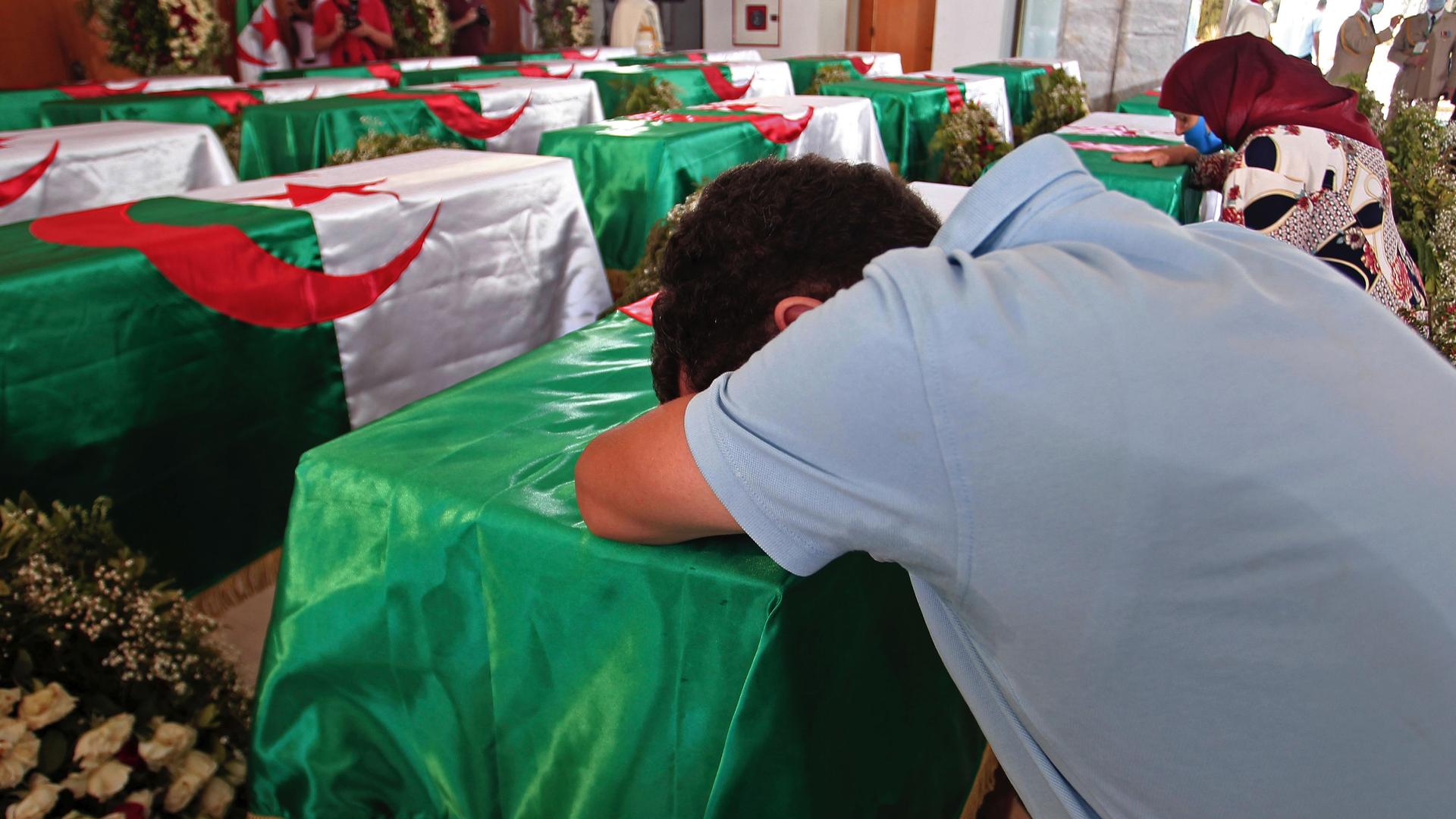For 132 years, France claimed Algeria as its own. It sent more than a million French citizens across the Mediterranean to live privileged lives there, while Algerians weren’t allowed to travel freely or gather in big groups.
Rim-Sarah Alouane, a French legal academic of Algerian heritage, said many French people today acknowledge those inequalities. But they also talk about the hospitals and schools that were built in Algeria during French colonialism.
Related: France still behind on anti-racist, anti-colonial progress
“No, there is no ‘but.’ Nothing positive came out of colonization. Land was stolen, identities were erased, crimes were committed.”
“So, you know, it’s always, ‘Yeah, it happened. It was bad, but,’” Alouane said. “No, there is no ‘but.’ Nothing positive came out of colonization. Land was stolen, identities were erased, crimes were committed.”
Related: France sets deadline to return 26 objects to Benin by 2021
As a candidate, French President Emmanuel Macron said he wanted to correct the record, and called French colonialism in Algeria a “crime against humanity.”
Once in office, he charged Benjamin Stora, a prominent French historian of Algerian colonial history, with delivering a report recommending ways to reconcile the long-standing conflict between the French and Algerian people.
Stora delivered the report late last month, and it has a number of recommendations, such as addressing colonialism more directly in French curricula. But the public reaction has focused on what it doesn’t say: Nowhere in its 146 pages does it advise that France apologize or commit to reparations.
“[French President Emmanuel] Macron made a big deal of the fact that he was of a new generation and that he was going to change this, and the report itself is not up to the standards that we might have desired.”
“Macron made a big deal of the fact that he was of a new generation and that he was going to change this, and the report itself is not up to the standards that we might have desired,” said Arthur Asseraf, a French historian at the University of Cambridge. “So, it does feel like an opportunity that is being missed to really shift the conversation on these issues.”
A spokesman for Macron confirmed the president would make no “repentance.”
Asseraf said that’s because such a move has become a sign of “leftist political correctness gone mad.”
In October, Macron gave a speech that linked the unresolved issues over France’s colonial past to unspoken resentment that he said is radicalizing young people, and leading to terrorist attacks.
Related: French Muslims worry ‘separatism law’ may create more division
“I do think that this is partly why there is a certain reluctance on the French government to say anything too publicly that would be seen as giving in to an Islamist threat,” Asseraf said. “To me, that is not connected; I don’t see what recognizing what happened in Algeria has to do with giving in to an Islamist threat. But that is a connection that they make quite consistently and that the far-right makes all the time.”
Especially since recent brutal attacks by terrorists who espoused Islamist beliefs — the beheading of a schoolteacher in a Paris suburb, and the beheading and fatal stabbing of three churchgoers in Nice.
Alouane said that attitude shows many in France still do not consider some immigrants — and descendants of immigrants — as fully French.
Related: Muslim women reflect on wearing the niqab in a mask-wearing world
“The people of Muslim background or of North African background are suspected of being [a] ticking bomb. That, ‘Oh, my God, if we don’t do something about reconciliation with Algeria, they’re going to commit terrorist attacks,’” she said. “It’s a horrible thing to say. And it’s racist.”
Alouane said it’s led to a disturbing dynamic: People who call out racism are seen as a threat to national security. Still, she supports a recommendation from the report that Macron said he’ll act on — to create a truth and memory commission made up of both French and Algerians.
“Why not? But I mean, if you don’t apologize, if you don’t recognize that you are responsible [for a] heinous crime, you can write as many reports as you want. You can organize as many exhibition[s] as you want. You can have as many commemorative plates as you want,” she said. “It won’t change a thing, and it will definitely not bring justice to families.”
During the Algerian War (1954-1962), French soldiers used systematic torture, sexual violence, and napalm on Algerians. They mined the country’s borders to keep anyone from leaving.
After suffering more than a million casualties, Algerians finally won independence in 1962. French settlers fled back to France, and the French government deliberately suppressed information about what happened, said Itay Lotem, a lecturer in French studies at the University of Westminster.
“There is this … state silence over the Algerian War, during and after the conflict.”
“There is this kind of, you can say, state silence over the Algerian War, during and after the conflict,” he said.
Lotem said when people finally began to talk more openly about the Algerian War in the 1980s and ’90s, it exposed a divide between a more conservative, older generation and younger people who want to use colonial history to confront modern issues of racism.
“All these debates about how to remember the colonial past, these are also debates about who we are now, how to make sense of having become a postcolonial society, how to live to live together, in a sense,” he said.
